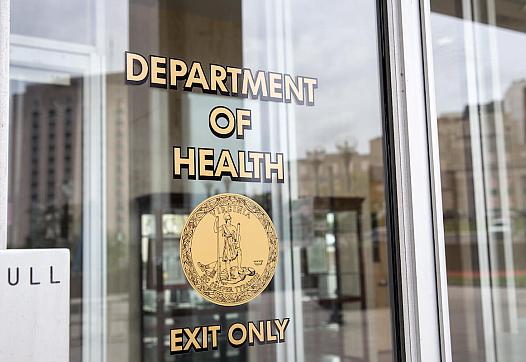Virginia hospitals, clinics brace for federal health care changes
The story was originally published by Virginia Mercury with support from our 2025 Impact Fund for Reporting on Health Equity and Health Systems.
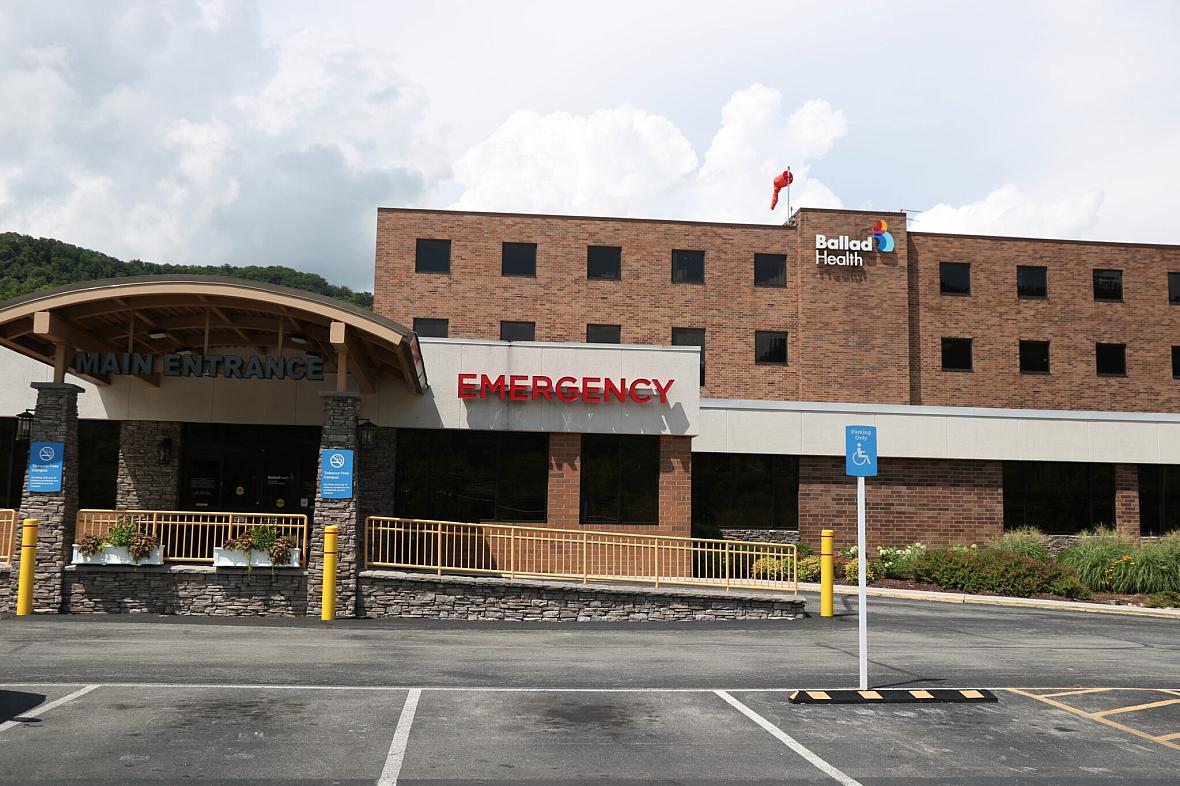
Lee County Community Hospital in Pennington Gap was once shuttered before Ballad Health took over and reopened the facility in 2021. Now it is among Virginia’s vulnerable hospitals amid federal funding changes to public health.
(Photo by Charlotte Rene Woods/Virginia Mercury)
Lee County Community Hospital, a once-shuttered facility enveloped by mountains on the far western edge of Pennington Gap deep in Southwest Virginia, was resuscitated by Ballad Health in 2021. Now, it is one of six Virginia hospitals considered vulnerable amid big federal changes to Medicaid and hospitals.
In the years since its reopening, it has incrementally added new services, like an MRI machine to bolster cancer screenings, additional hospital beds, and a helicopter pad. Despite not having an obstetrics unit, administrator Cindy Elkins said its emergency room has still delivered 14 babies since it opened.
“I’ve had a couple of our (emergency department) providers actually tell me that it’s sometimes more challenging to work here than a level one trauma center, because they don’t know what’s coming in the door, and it can be anything,” Elkins said.
She said “anything” includes women in labor, farm equipment injuries, and impoverished people coming in for help wearing shoes that “were falling apart” and sifting through the hospital’s donation pile for clothing. The area had spent nearly a decade without a local hospital.
Although the shifting federal rules pose a risk to services and funding for the facility, Elkins said there’s good news. Lee County Community Hospital is designated as a Critical Access Hospital, the type of facility where Medicare reimbursement fares a little better. Still, the reconciliation bill Congress passed this summer could cause thousands of Virginians and millions nationwide to lose health coverage.
“Obviously it’s a huge concern for us,” Elkins said.
What the changes mean for patients, hospitals
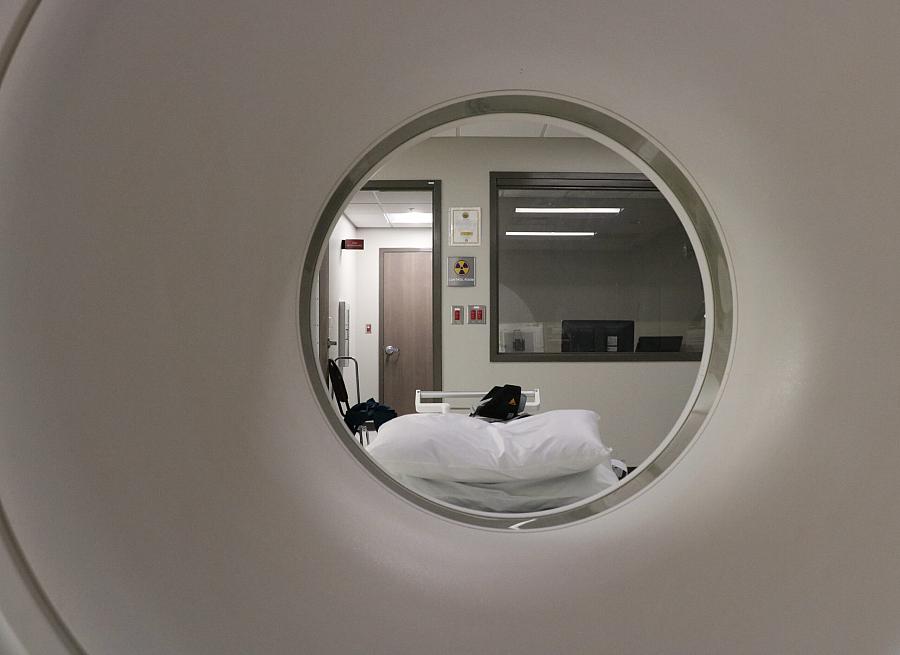
An MRI machine in Lee County Community Hospital, a once-shuttered facility that Ballad Health reopened in 2021.
Photo by Charlotte Rene Woods/Virginia Mercury
Congress’ One Big Beautiful Bill Act includes changes to provider assessment rates and state-directed payment programs. The two funding mechanisms are critical to hospital operation in Virginia and determine how hospitals chip in to the state’s expanded Medicaid coverage. The state’s hospitals are bracing for a $2 billion hit as the changes are fully implemented.
Of Virginia’s roughly 1.9 million people on Medicaid, roughly 600,000 who became eligible when the state expanded its program in 2018 would be most affected.That year, Virginia became the 33rd state to expand its program to reach others who may otherwise struggle to access health insurance.
That population will become subject to work requirements and twice-yearly verification for coverage, once the federal changes take hold. State agencies and local governments are preparing for strains in implementing these requirements and advocates say they will be challenging for enrollees to navigate.
For Lee County’s hospital, administrator Elkins shared that about 75% of its patients have either Medicaid or Medicare coverage. Meanwhile, 21% percent of patients have private insurance they’ve purchased on their own or that is provided by their employers.
Ballad Health’s chief operations officer Eric Deaton characterized the forthcoming challenges as “pretty scary.”
He predicts Ballad could lose around $25 million in the first year the reconciliation bill’s hospital funding changes take effect. Ballad is one of the few hospital chains to have a footprint in rural areas. This can mean less profits and smaller operating margins than more urban, suburban or affluent areas, but Deaton called rural communities “a calling” for some physicians and hospital systems.
“We’re very concerned and we’re really focused on ‘what can we do to work with our legislators in the future?’” he said.
With uninsured people less likely to seek preventative care, they are more apt to wait for emergencies to get help. That care becomes costlier; hospitals may absorb it for a time but will likely have to find ways to offset costs.
The Virginia Hospital and Healthcare Association, which represents Ballad and other chains, has noted the potential for staff or service reductions or facility closures.
The newly created federal Rural Health Transformation Fund stands to make matters a little better, but Ballad government affairs manager Stacey Ely said it’s inadequate to offset the damage done by Congress’ reconciliation bill.
With $50 billion earmarked over the next five years, states can apply for a piece of the annual $10 billion-per-year pie. Centers for Medicare and Medicaid Services administrator Mehmet Oz emphasized in a recent press call how the awarded funds may go towards workforce investments or information technology upgrades.
“I think it’s a little bit misleading to say that this is going to save rural hospitals,” Ely said. “It’s a $50 billion plug for a $300 billion hole.”
Speaking out
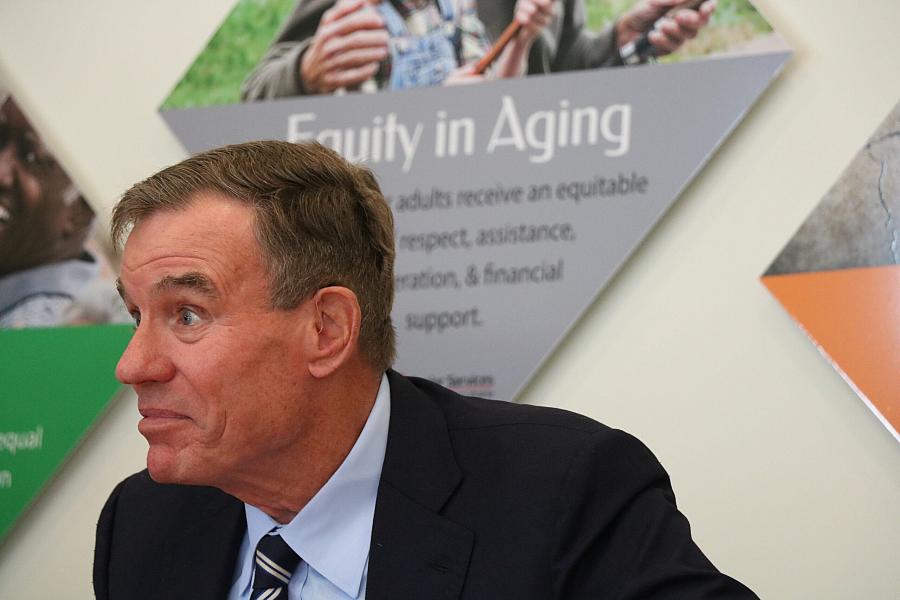
U.S. Sen. Mark Warner, D-Virginia participates in a roundtable discussion about forthcoming changes to healthcare access and affordability outlined in Congress’ reconciliation bill that it passed this summer, despite his opposition.
Photo by Charlotte Rene Woods/Virginia Mercury
Southampton Memorial Hospital in Franklin, a seven-hour drive east of Lee County’s hospital, is another vulnerable health care facility in Virginia. During a roundtable discussion with local community members in Franklin, Virginia’s federal and state lawmakers emphasized how the reconciliation bill’s health care impacts stand to affect more than those who’ve relied on Medicaid, echoing concerns hospitals relayed all summer.
When emergency rooms fill with urgent care needs from uninsured patients, hospitals’ negotiations with private insurers could raise rates to offset those costs, Virginia House Speaker Don Scott, D-Portsmouth, and U.S. Sen. Mark Warner, D-Va., warned.
“They’re going to drive up all of our rates,” Warner said. “This will drive up healthcare costs for all of us — rich, poor, middle class and anywhere in between.”
He also issued a call to action for more hospitals to “be transparent” with the local communities. The roundtable event had been hosted at a nearby community center, though Warner said he’d originally sought to host it at the hospital.
While Bon Secours, the health system that operates Southampton, has not spoken about imminent changes publicly, it is part of the Virginia Hospital and Healthcare Association — the entity that sent the group letter to Congress this summer.
Ballad cranked the transparency up a notch — with CEO Alan Levine frequently commenting on social media and Ballad granting The Mercury multiple interviews along with a Lee County Community Hospital tour.
The process of passing the One Big Beautiful Bill Act, led by Republicans, experienced some inter-party disagreements over the health care changes, which factored into the creation of the Rural Health Transformation Fund. Virginia U.S. Reps. Rob Wittman, R-Westmoreland, and Jen Kiggans, R-Virignia Beach, had joined a letter in opposition to versions of the bill before ultimately voting for it.
The pair framed the bill as a way to protect the longevity of Medicaid in the long term, with the health care changes not poised to take effect until 2027 and 2028 — after each incumbent’s 2026 midterm elections.
Safety nets feel a growing strain
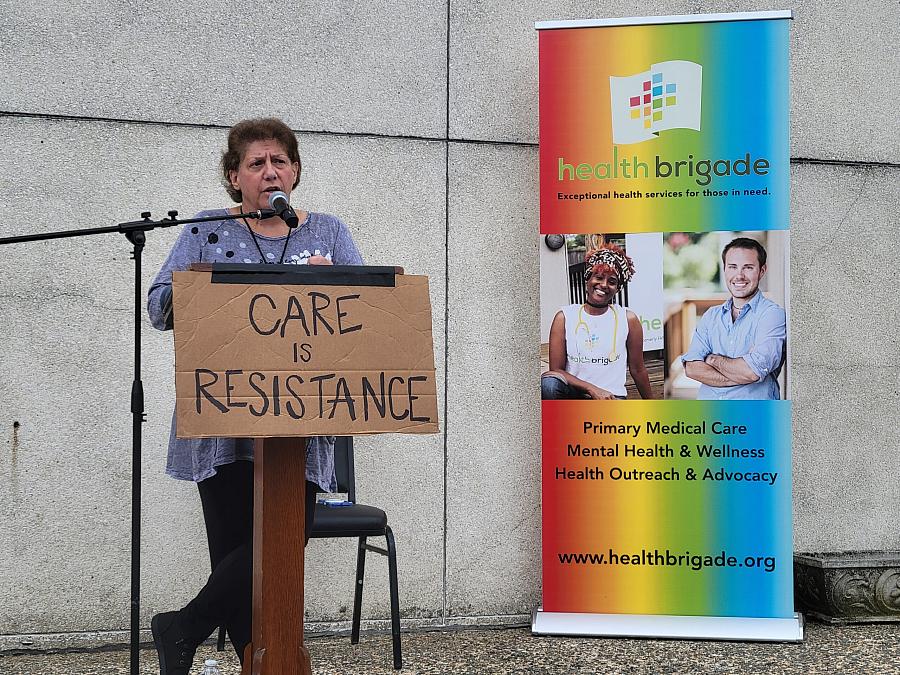
Health Brigade executive director Karen Legato speaks at a town hall on May 29, 2025 to discuss state and federal funding cuts to Virginia’s network of free clinics.
Photo by Charlotte Rene Woods / Virginia Mercury
While hospitals brace for patient strain, free clinics and Federally Qualified Health Centers have already been triaging matters.
Both entities have long considered themselves the “safety net to the safety net” and their struggles pre-date federal funding fallouts of the past year and forthcoming years.
Virginia’s free clinics, for instance, have asked state lawmakers to give them a funding boost as they’ve experienced surges in patients but stagnant funding from the state. This year, the facilities had collectively hoped for $4 million more than typically budgeted for to keep up with its growing demand pre-OBBBA, but received $500,000 more to be used among the state’s 70 free clinics.
Meanwhile, federal grants administered through the state health department were stalled this year amid federal funding changes and the department’s own preexisting issues — causing a Richmond clinic to take out a line of credit and hope for the best.
Health Brigade executive director Karen Legato shared this summer that the Richmond-based clinic has lost $1.8 million in state and federal funding over the past year. To continue as many services as possible, Health Brigade is putting its building up for sale.
Likewise, about three hours west in Roanoke, the Council of Community Services has also experienced real estate downsizing, moving all of its operations into the building that has long served as its drop-in clinic.
While both the Council and Health Brigade have worked to diversify their funding sources, Legato noted “damaged trust” with state and federal entities.
Still, the Virginia Association of Free and Charitable Clinics, which represents the state’s clinics, will continue to advocate for state funding. CEO Rufus Phillips has been in touch with hospitals, federally qualified health centers and VDH throughout the year.
“We’re all in this together as the safety net,” he said. “Hospitals certainly want to lean on the free clinics to meet people at the primary care level to reduce emergency room care. Our clinics are happy to help where they can but they’re strapped as it is.”
Lawmakers look ahead
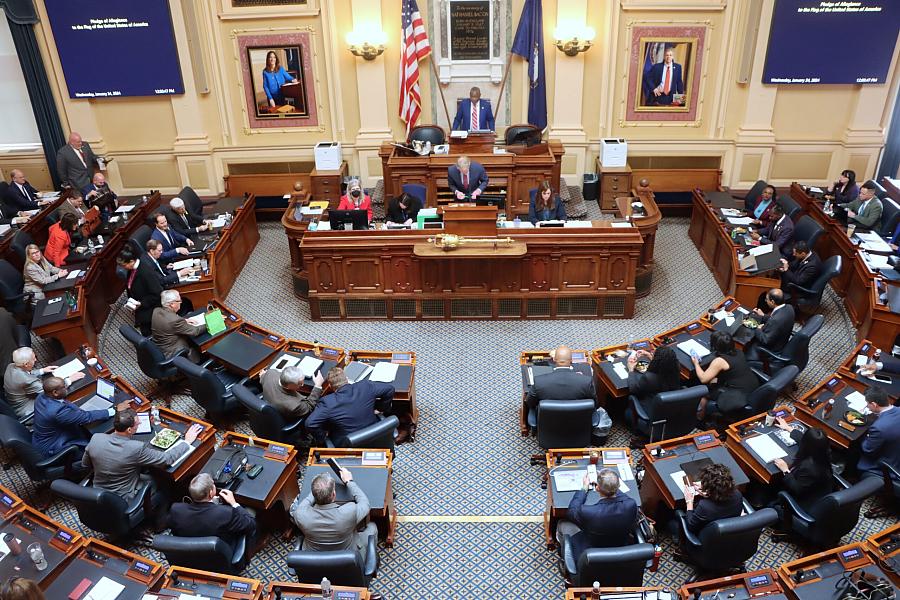
A view of the Virginia House of Delegates Chamber in Richmond.
(Photo by Nathaniel Cline/Virginia Mercury)
As the U.S. Congress has grappled with a government shutdown this fall and Virginia is about to elect a new House of Delegates, governor, lieutenant governor and attorney general, it is the state government that may have to carry health care financial burdens at least in the next year.
Sen. Jeremy McPike, D-Prince William, a member of the Senate finance committee who has a background as a volunteer firefighter and EMT, emphasized that both state chambers’ money committees will have a retreat later this year where the emerging health care changes will be on the agenda.
“That’s going to be a key point to receive the outgoing governor’s budget and start to pick apart what the real revenue predictions are, what kind of resources we will have or not have, and be able to tackle some of the major issues that are coming Virginia’s way,” McPike said.
While term-limited Gov. Glenn Youngkin can present a draft of a state budget that the next governor can work with, all 140 state lawmakers will have some hand in further crafting it.
As federal workforce cuts continue — with Virginia, Texas and Maryland having the most federal workers among states — trimming public health funding and plugging competing federal funding holes stand to dominate portions of next year’s budget negotiations.
“I think that’s where we are right now,” McPike said. “It’s just the macro until we get into more details here in the coming months.”


